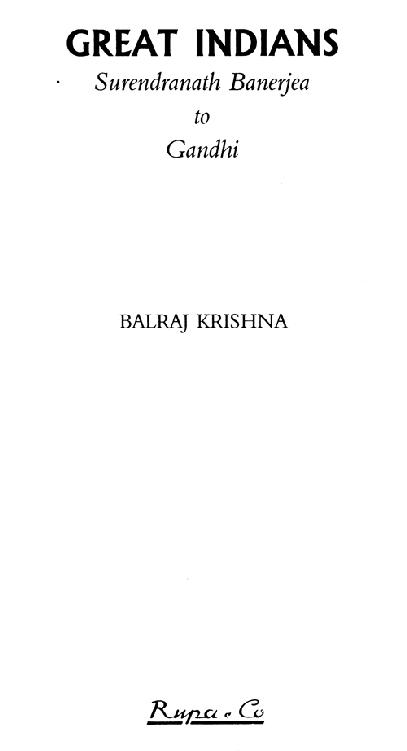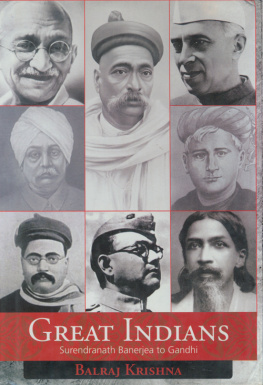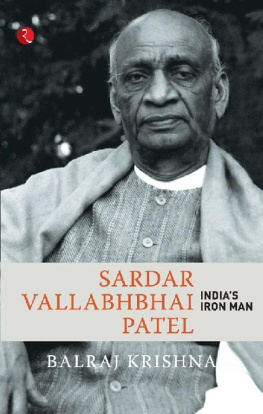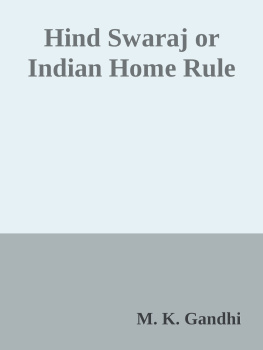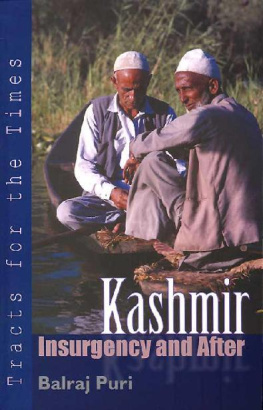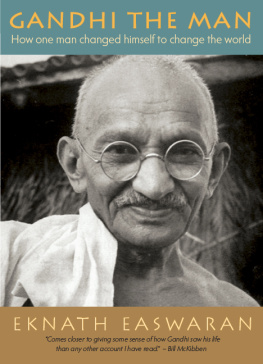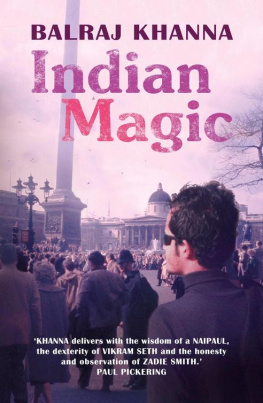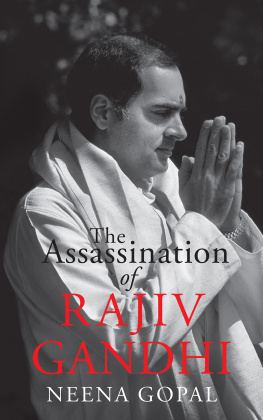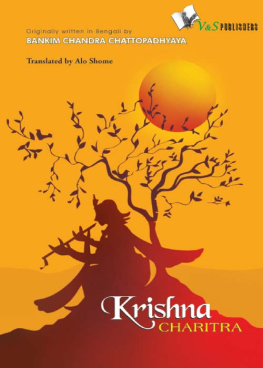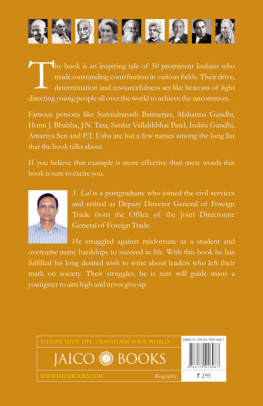GREAT INDIANS
Surendranath Banerjea
to
Gandhi
Copyright Balraj Krishna 2010
Published 2010 by
Rupa Publications India Pvt. Ltd.
7/16, Ansari Road, Daryaganj
New Delhi 110 002
Sales Centres :
Allahabad Bengaluru Chandigarh
Chennai Hyderabad Jaipur Kathmandu
Kolkata Mumbai
All rights reserved.
No part of this publication may be reproduced, stored in a retrieval system, or transmitted, in any form or by any means, electronic, mechanical, photocopying, recording or otherwise, without the prior permission of the publishers.
The author asserts the moral right to be identified
as the author of this work.
Typeset by
Mindways Design
1410 Chiranjiv Tower,
43 Nehru Place
New Delhi 110 019
Printed in India by
Saurabh Printers Pvt. Ltd.
A-16, Sector-IV,
Noida 201 301
Contents
To,
Mansa Devi
A Mother to be ever Remembered
To Annie Besant, 'love of her mother was a idolatry'. To Dadabhai Naoroji, mother was his 'constant companion, nurse, teacher and guardian angel... widowed when I, her only child, was an infant. She voluntarily remained a widow, wrapped up in me, her everything in the world'.
Mother is the Creator of us all humans, animals, birds. She feeds us with her life-giving blood pre-birth; post-birth, with her nourishing milk. She teaches us how to smile, how to utter sounds, and thereafter to speak. Feeling cold or scared, we hide ourselves in the seclusion of her comforting bosom. Large-heartedly, she allows us to drift away from her to build our own nests, as she did for herself earlier. But the silken bonds never break. They are the purest, built on selfless labour and unremitting sacrifices on her part.
Being part of such noble traditions, I salute my mother in all humility and veneration. Often I feel lost in the fragrance of her sweet memories.
Introduction
India 1857 to 1947: A Broad Survey
The two mutinies the Sepoys of 1857 and the Naval Mutiny in 1946 played decisive roles in India's gaining her Independence in 1947. Even when the former collapsed without achieving the desired goal, it had sowed seeds of unrest that sprouted two decades later in the emergence of a new class of educated Indians to conduct the fight till India gained her freedom. A sleeping people's conscience was roused by a young Surendranath Banerjea through his stirring speeches, especially at gatherings of students in the new educational institutions the British had set up. He has appropriately been called the Father of Political Consciousness; later there was the fiery Lokamanya Tilak as the Father of Indian Unrest; followed by Mahatma Gandhi as the Father of Mass Awakening; and, finally, it was Sardar Patel, whom Nehru appropriately called the 'builder and consolidator of New India'. It was, however, the Naval Mutiny of 1946 that delivered the final blow to the tottering British Empire and hastened the transfer of power in 1947.
With the annexation of Punjab and surrender of the brave Sikhs in 1846, the British succeeded in the creation of their Indian Empire stretching across the subcontinent from the North-West Frontier to the east. This boosted their pride and arrogance, no less their attitude of vindictiveness. In their hatred they called Indians the 'nigger Natives'. Thomas Munro wrote to the Governor-General in 1817: 'Foreign conquerors have treated the Natives with violence and often with great cruelty, but none has treated them with so much scorn as we; none have stigmatised the whole people as untrustworthy of trust, as incapable of honesty and as fit to be employed only where we cannot do without them. It seems to be not only ungenerous, but impolitic, to debase the character of a people fallen under our domain...' The Natives were looked upon as a 'lesser breed without the law' after Rudyard Kipling.
This attitude was evident in the behaviour of many of the British rulers. Lord Lawrence heaped insult on them by contemptuously telling them Will you be governed by the pen or the sword?' A grim warning, so humiliating. It was like a judgement delivered by him from his statue outside the Lahore High Court. Equally outrageous was Lady Linlithgow's 'red eye' to make people feel her presence, even when unseen, through the red light burning atop the Viceregal Lodge at Shimla. Such insults were down the line as well to make the Indians realise their inferior status in society.
A District and Sessions Judge at Jullunder, in Punjab, prohibited Indian lawyers' entry into his court-room with shoes' on! Similarly Indians not the dark-skinned Anglo-Indians could not travel in railway compartments marked in bold letters: 'For Eurasians only'. My father, Gauri Shankar (1885-1975), had a minor encounter. He was boarding a train from Lahore to Amritsar. Hardly twenty, he had studied only up to the eighth standard in a village school, and yet he was fired with the spirit of defiance injected by the Bengal Partition agitation of 1905 In that mood he deliberately entered a compartment meant for Eurasians only. The lone occupant, an Anglo-Indian, shouted at him: 'Didn't you read the notice outside?' Quietly my father answered: Yes, I did. But I see no Eurasian here. If you are one, then, my complexion is better than yours!' The Anglo-Indian felt so ashamed that he didn't answer back but quietly got down on reaching his destination.
Ashutosh Mukherjee, a judge of the Calcutta High Court, had a 'royal' encounter with an arrogant British planter. The two were travelling by train in a coupe. Many things angered the planter. First and foremost, his pride was hurt by having to travel in the company of an 'ugly' Indian one who was tall, dark and hairy. He felt humiliated over being given the upper berth. Faced with no option, he settled down. After a while he climbed down to go to the toilet. His foot got stuck in Mukherjee's large Bengali slippers. Irritated, he uttered: 'Damn it,' and with that he threw them out of the running train.
Mukherjee watched all that with a judge's calm. He allowed the planter to settle down on his upper berth and go to sleep. Now it was his turn to act. He got up and threw his coat out. Some time passed in absolute silence. The planter got down to take a cigarette from his coat pocket. Finding it missing, he shouted: Where's my coat?' Mukherjee quietly answered: 'It has gone to fetch my slippers!' The planter uttered some words of abuse. At the next railway station, Mukherjee held an open court. Realising the fate he could meet with, the planter apologised profusely and settled the matter. For Mukherjee this was more than sufficient. He had humbled a British planter and vindicated his pride.
Lord Dalhousie's doctrine of 'lapse' dispensed with Paramountcy invested on the rulers by Lord Wellesley, whereby he had made them loyal members of the Princely Order he had created. Under Dalhousie, in 1852, the State of Udaipur 'lapsed'; in 1853 it was Jhansi; also, the pension of the former Peshwa of Pune 'lapsed'. Dalhousie did not spare rulers in the south: the Nawab of Carnatic and the Raja of Tanjore. He sought to dispense with the title and the annual stipend of the Mughal Emperor as well. A year before the Mutiny, in 1857, there was the annexation of Oudh, which 'undermined the Bengal Army's faith in the Raj it served'. It has been described as Dalhousie's 'worst blunder'.

